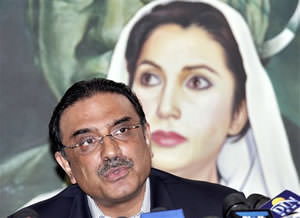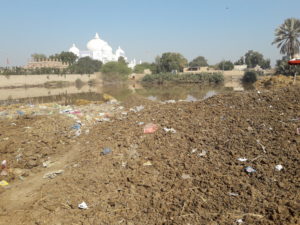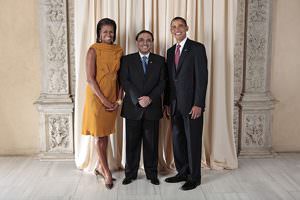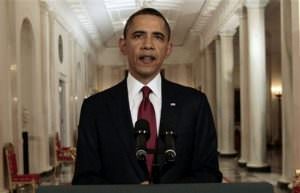Dozens of Pakistani Politicians Called to Corruption Courts
Pakistan's Supreme Court dealt a blow to many in the country's ruling elite Friday by reopening corruption cases against "thousands of politicians," according to The New York Times, and calling for dozens of those officials to appear before the courts. Included on the list was President Asif Ali Zardari, but his position grants him immunity against prosecution.
Pakistan’s Supreme Court dealt a blow to many in the country’s ruling elite Friday by reopening corruption cases against “thousands of politicians,” according to The New York Times, and calling for dozens of those officials to appear before the courts. Included on the list was President Asif Ali Zardari, but his position grants him immunity against prosecution. The same can’t be said, however, for a couple of his key ministers. –KA
Your support matters…The New York Times:
But as Mr. Zardari and his party, the Pakistan Peoples Party, the biggest in Pakistan, battled to survive, a groundswell of media and public opinion seemed to exult in the decisiveness of the Supreme Court decision, suggesting there would no longer be a tolerant attitude toward corruption among politicians in Pakistan.
“We’ve never seen the mighty in this country held accountable,” said Babar Sattar, a Harvard-trained constitutional lawyer.
Now that the court, backed by public opinion, had come down hard on corruption in a way not seen before in Pakistan, the affected politicians were not sure how to react, Mr. Sattar said.
The confused response was evident when Prime Minister Yusuf Raza Gilani dismissed the Interior Secretary, Qamar-uz Zaman Chaudhry, and three officials of Federal Investigation Agency Friday evening for barring Mr. Mukhtar, the defense minister, from traveling abroad on Thursday.
The incident was an embarrassment to the ruling Pakistan Peoples’ Party and the defense minister, who was leaving for China on an official visit and called the move “shameful.”
Independent journalism is under threat and overshadowed by heavily funded mainstream media.
You can help level the playing field. Become a member.
Your tax-deductible contribution keeps us digging beneath the headlines to give you thought-provoking, investigative reporting and analysis that unearths what's really happening- without compromise.
Give today to support our courageous, independent journalists.





You need to be a supporter to comment.
There are currently no responses to this article.
Be the first to respond.